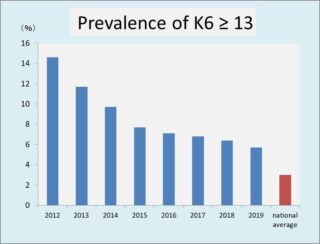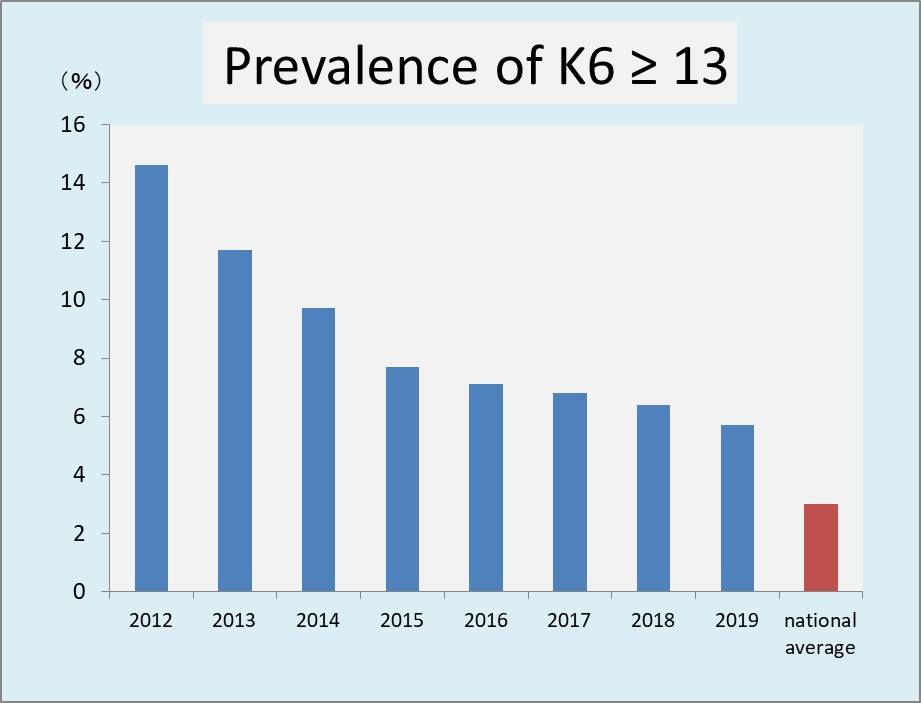2020.08.17

How can you measure the “mental health” of the residents around the Fukushima Daiichi Nuclear Power Plant?
Fukushima Medical University has been administering gThe Mental Health and Lifestyle Surveyh as part of gFukushima Health Management Surveyh to monitor the long-term health of the residents commissioned by Fukushima Prefecture.
As a result, they found that the mental health of people living around the nuclear power plant deteriorated significantly immediately after the TEPCO Fukushima Daiichi Nuclear Power Plant accident. It is improving gradually thereafter, however, not fully to the level of national average.
Right after the nuclear accident, evacuation orders were issued to the surrounding area of the nuclear power plant and people had to leave their homes and communities behind. The survey has been conducted periodically targeting residents in 13 municipalities which were designated as evacuation zones (Hirono, Naraha, Tomioka, Kawauchi, Okuma, Futaba, Namie, Katsurao, Iitate, Minamisoma, Tamura, Kawamata, part of Date) by Fukushima Medical University.
The survey deploys “K6,” a truncated form of Kessler Psychological Distress Scales internationally used to measure mental distress. The tool asks six questions such as “Did you feel desperate?” and quantifies the degree of distress of participants.
If the K6 score is or higher than 13 out of 24 points, it may indicate a mood disorder (depression) or anxiety disorder.
According to a research done in 2019 by Fukushima Medical University, proportion of residents who scored 13 or higher steadily decreased from 14.6% in 2012 to 5.7 %. Past research indicates that in normal times, percentage of those who score 13 or more is about 3%.
Results of 2019 survey show that K6 scores of women tended to be higher than men (6.1% for women, 5.3% for men). Past national surveys indicated the same trend and Fukushima was no exception. By age groups, younger people showed higher proportion of psychological distress (16-39: 7.3%, 40-64: 6.4%, 65 and over: 5.0%).
They also found that residents living outside Fukushima Prefecture had a higher proportion of psychological distress than those living within the prefecture (residents in Fukushima: 6.0%, residents outside: 9.0%).
Fukushima Medical University provides telephone consultation by “mental health support team,” consisting of clinical psychologists, public health nurses, nurses, etc. For those who need further consultation/ support from doctors, they also refer them to registered physician who took courses on mental health in disaster situations or radiation medicine, and provide information on medical institutions.
Reference link
E Survey on mental health and lifestyle (Fukushima Medical University Radiation Medicine Prefectural Health Management Center)
https://fukushima-mimamori.jp/mental-survey/
E Post-survey consultation / support (Fukushima Medical School) Prefectural Health Care Center, University of Radiology)
https://fukushima-mimamori.jp/mental-survey/aftercare.html




